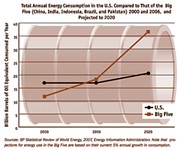Chasing Gary
To Annex or Not to Annex
By Robert Bryce, Fri., Sept. 19, 1997
|
|
Austin is on the annexation warpath. Last week, the city council announced plans to absorb more than 30,000 new residents who currently live outside the city in 26 different municipal utility districts (MUDs). Nearly 8,000 of these future Austinites live in developments adjacent to Circle C Ranch. Could Circle C be next? Should it be? For years, the city has been providing water and wastewater services to the project. And just last month, state district court judge Scott McCown issued a preliminary ruling saying that Circle C's exemption from the city's water quality regulations -- via the 1995 Austin-bashing bill known as HB3193 -- is unconstitutional. That means that there are no legal barriers to prevent the city from annexing the property.
But annexation questions are seldom simple, and the situation at Circle C is positively Byzantine. If the city annexes the 4,000-acre development, which has some $274 million worth of property, it will increase city tax revenues by about $1.4 million per year. However, annexation will also increase the city's debt load and could force the city to increase its water and wastewater rates. And in a strange twist, annexation could benefit Circle C residents more than city of Austin residents.
According to a Circle C sales representative, residents in the development now pay a total of $2.65 per $100 of property value to the various local taxing entities. City of Austin residents pay $2.38 per $100. So if the city annexes the property, Circle C residents would see their tax bills go down. They would also get city police and fire protection, would be eligible to vote in city elections, and would have access to city libraries.
The city would get new tax revenues, and would be able to count on future tax revenues from the project as more homes and buildings locate inside the area. The city would also gain control of the bicycle veloway, a project which cost city taxpayers $300,000, but was built at Circle C. Gaining control of the veloway should be a consideration, given that the city is planning to spend substantial amounts of money for its upkeep. Under the current budget proposal, the Parks and Recreation Department is planning to spend $26,612 on veloway maintenance. In addition, the city is planning to spend another $53,000 from the capital improvements budget to resurface the entire veloway.
Annexing the land has been part of the city's plan ever since 1984, when the city signed the municipal utility district contracts to extend water and wastewater service to the development. The deal allowed developer Gary Bradley to create four MUDs, which then issued bonds. The city is responsible for repaying 85% of the MUD bond debt. Circle C residents pay the remainder, through a surcharge on their water and wastewater bills. According to sources close to the situation, the city had already been considering annexing two of the four Circle C MUDs before the Legislature passed HB 3193, the law that McCown found unconstitutional last month.
| CIRCLE C MUDS | |||
| Taxable Value | Debt Load | Acreage | |
| MUD 1 | $4.8 mil | none | 784.5 acres |
| MUD 2 | $38.8 mil | none | 678.2 acres |
| MUD 3 | $84.0 mil | $5.75 mil | 722.5 acres |
| MUD 4 | $147.1 mil | $7.56 mil | 597.5 acres |
| Total | $274.7 mil | $13.31 mil | 2782.7 acres |
One Circle C resident, who asked not to be named, favored annexation. "I don't like being cast as part of an outlaw community," said the resident. "I miss being able to vote in city elections. If I could be assured that we can keep the level of services uniform, then I don't have a problem with it." Ken Rigsbee, a Circle C resident and occasional leader of the development's homeowner group, agrees that annexation could be beneficial. "It would be a slight savings," said Rigsbee of the tax situation. "If you can get [Austin mayor] Kirk Watson to say `We will assume that debt and provide services,' I think you'd have some happy people; I don't think anyone would oppose it. But I just don't think it will happen."
Mayor Watson, for his part, says that because the HB3193 matter is still in litigation, Circle C "annexation is not something we have spent staff time in analyzing to see if it makes sense."
In addition to the debt questions, the city faces other risks if it annexes Circle C. First and foremost is the Texas Legislature, which has shown little compassion for the needs of the capital city, particularly when it comes to water quality issues.
And there are legal hurdles. Judge McCown isn't required to issue his final ruling on the HB3193 case until the end of next month. Until he does so, the city cannot annex the property. Also, lawyers for Circle C are gearing up to appeal McCown's ruling. If McCown's ruling is upheld, then the city can impose its development regulations on Circle C even if it chooses not to annex the property. Under the terms of the 1984 MUD contracts, Bradley agreed to let the city impose its development regulations on Circle C. The city might have a stronger hand in imposing water quality regulations if it annexed Circle C, but according to lawyers close to the case, annexation is not required because the MUDs are under a contractual obligation to abide by the city's water quality laws.
If the city decides that Circle C falls under S.O.S., development on the tract would be limited to a maximum of 25% impervious cover, with most of it restricted to 15%. However, landowners in the MUDs could try to create a water quality protection zone, a legal maneuver created by the Legislature in 1995 which allows large developments to escape the city's development regulations. FM Properties (FMP), which owns the commercial property at Circle C, has already used the protection zone gambit to escape Austin's jurisdiction over the Barton Creek PUD project. But in the wake of McCown's ruling that HB 3193 is unconstitutional, city attorneys are expected to argue that the same issue applies to the water quality protection zone legislation. No lawsuits have been filed on that issue.
The two entities that would be most affected by the annexation are FMP, the New Orleans-based subsidiary of mining conglomerate Freeport-McMoRan, and Phoenix Holdings, the Austin-based company that Bradley heads. FMP owns the commercial property at Circle C; Phoenix owns the residential portion. The two companies, former allies in fighting the city of Austin, are now locked in a legal battle over monies collected by the Circle C MUDs. Calls placed to FM Properties representatives in New Orleans, and to Bradley's office in Austin, were not returned.
Getting the MUDs and Austin together is sort of like setting up a blind date -- there's no guarantee the relationship will work out. While many Austinites may wonder whether any potential increase in property tax revenues will cover the cost of providing services to the MUDs, Circle C residents have their own suspicions, according to MUD resident Rigsbee. He says the city is likely to take his taxes and neglect to extend adequate services. "It's a simple matter," Rigsbee said. "We can't trust the city."
Got something to say on the subject? Send a letter to the editor.









